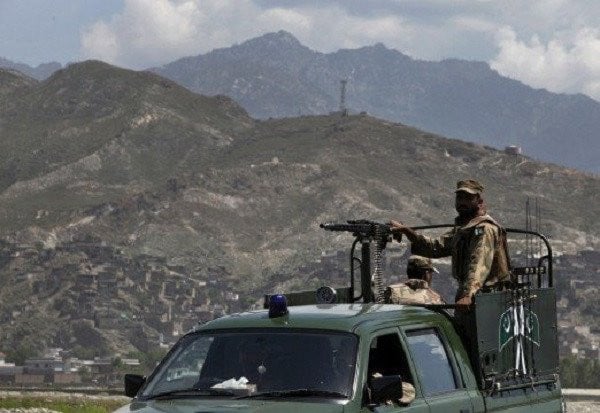
Pakistan has long been at the forefront of the global fight against terrorism. The country has grappled with this menace for decades, with various regions suffering from the scourge of militant activities. In recent years, the resurgence of terrorist groups, particularly with support from across the border in Afghanistan, has once again heightened the threat. In response, Pakistan has launched a new military operation, Operation Azm-e-Istehkam, aimed at quelling this resurgence and restoring peace and stability. This article examines the historical context of Pakistan’s counter-terrorism efforts, the successes achieved in previous operations, and the potential for success in this latest endeavor.
A Historical Overview of Pakistan’s Counter-Terrorism Efforts
Pakistan’s fight against terrorism has been long and arduous. The country has conducted several major military operations to counter various terrorist factions, primarily in the Federally Administered Tribal Areas (FATA) and Khyber Pakhtunkhwa (KP). These operations have not only been critical in dismantling terrorist networks but have also been lauded by the international community for their effectiveness.
Operation Rah-e-Rast (2009)
One of the early significant operations was Operation Rah-e-Rast in 2009, targeting the Tehrik-i-Taliban Pakistan (TTP) in the Swat Valley. The operation was launched after the TTP established a stronghold in the region, imposing their brutal interpretation of Sharia law and terrorizing the local population. The Pakistani military successfully cleared the area of militants, restoring the government’s writ. The operation resulted in the death of over 2,000 militants and displaced more than two million civilians, who later returned to a relatively peaceful Swat Valley.
Operation Rah-e-Nijat (2009)
In the same year, Operation Rah-e-Nijat was launched in South Waziristan, a TTP stronghold. The operation aimed to dismantle the terrorist infrastructure in the region. The military faced formidable resistance but managed to clear significant areas of militant presence. The success of this operation was crucial in disrupting the TTP’s operational capabilities and leadership structures.
Operation Zarb-e-Azb (2014)
Perhaps the most notable of Pakistan’s counter-terrorism efforts was Operation Zarb-e-Azb, launched in 2014 in North Waziristan. This operation targeted a broad array of terrorist groups, including the TTP, Haqqani Network, and Al-Qaeda. Over 30,000 Pakistani troops participated in this extensive campaign, which resulted in the elimination of more than 3,500 militants and the destruction of hundreds of militant hideouts. The operation also led to significant seizures of arms and ammunition, severely crippling the operational capabilities of these groups.
Operation Radd-ul-Fasaad (2017)
Following the success of Zarb-e-Azb, Operation Radd-ul-Fasaad was launched in 2017 to eliminate the residual threat of terrorism across the country. This operation focused on intelligence-based operations (IBOs) to target sleeper cells and support networks. The operation also included efforts to de-weaponize and de-radicalize various segments of the population. By 2019, over 75,000 IBOs had been conducted, leading to the arrest of thousands of suspects and the seizure of significant caches of weapons and explosives.
Current Threat Landscape and the Launch of Operation Azm-e-Istehkam
Despite these successes, Pakistan continues to face challenges from resurgent terrorist groups, particularly those receiving support from elements within Afghanistan. The withdrawal of NATO forces from Afghanistan in 2021 and the subsequent Taliban takeover have created a power vacuum, allowing various militant factions to regroup and reassert themselves. This resurgence has manifested in a spike in terrorist activities in Pakistan, necessitating a robust response.
Against this backdrop, Pakistan has launched Operation Azm-e-Istehkam. This operation aims to target terrorist safe havens, dismantle their networks, and restore peace in the affected regions. The operation’s objectives include not only the physical elimination of terrorists but also the restoration of state authority and the rehabilitation of affected areas.
Strategic Objectives of Operation Azm-e-Istehkam
One of the primary objectives of Operation Azm-e-Istehkam is to eradicate terrorist safe havens, particularly in the border regions adjacent to Afghanistan. This involves conducting targeted strikes and ground operations to dismantle militant hideouts and logistical bases. Building on the success of previous operations, Azm-e-Istehkam emphasizes intelligence-driven operations to identify and neutralize terrorist cells and networks. This approach ensures precision and minimizes collateral damage. Given the cross-border nature of the terrorist threat, enhancing border security is a critical component of the operation. This involves deploying additional troops, improving surveillance capabilities, and fostering better coordination with Afghan authorities to prevent infiltration. Recognizing the importance of winning hearts and minds, Operation Azm-e-Istehkam includes initiatives for community engagement and rehabilitation. This involves providing humanitarian assistance, rebuilding infrastructure, and promoting socio-economic development in affected areas to prevent the re-emergence of militancy.
Lessons from Past Successes
The success of Operation Azm-e-Istehkam draws heavily on the lessons learned from previous counter-terrorism operations. Key among these lessons is the importance of sustained military pressure, comprehensive intelligence efforts, and the necessity of post-conflict rehabilitation and development. Operations such as Zarb-e-Azb and Rah-e-Rast demonstrated that sustained military pressure is essential to dislodge entrenched militant groups. Continuous operations, coupled with the relentless pursuit of terrorists, ensure that these groups cannot regroup and regain strength. Azm-e-Istehkam aims to maintain this pressure, ensuring that terrorist factions remain on the defensive.
The success of Radd-ul-Fasaad highlighted the effectiveness of intelligence-based operations. By focusing on intelligence gathering and analysis, the Pakistani military was able to conduct precise operations against terrorist cells and support networks. Operation Azm-e-Istehkam places a similar emphasis on intelligence-driven strategies, ensuring that operations are targeted and effective. One of the critical components of long-term success in counter-terrorism is the rehabilitation and development of conflict-affected areas. The return of displaced populations, the rebuilding of infrastructure, and the provision of essential services are crucial to preventing the re-emergence of militancy. Azm-e-Istehkam includes comprehensive plans for post-conflict rehabilitation, aiming to restore normalcy and promote development in affected regions.
Pakistan’s counter-terrorism efforts have received recognition and support from the international community. The success of operations such as Zarb-e-Azb and Radd-ul-Fasaad has been lauded by various countries and international organizations. The U.S. Department of Defense, for instance, acknowledged the effectiveness of Zarb-e-Azb in disrupting terrorist networks and stabilizing the region. Operation Azm-e-Istehkam is expected to build on this international support. Cooperation with global partners, including intelligence sharing and capacity building, will be crucial in ensuring the operation’s success. Additionally, Pakistan’s continued commitment to combating terrorism aligns with global efforts to promote peace and security.
Operation Azm-e-Istehkam represents Pakistan’s continued resolve to combat terrorism and restore peace and stability. Drawing on the lessons and successes of past operations, this new initiative aims to dismantle terrorist networks, strengthen border security, and promote rehabilitation and development in affected areas. While the challenges are significant, the resilience and determination demonstrated by Pakistan in previous counter-terrorism efforts provide hope for the success of Operation Azm-e-Istehkam. As the international community watches closely, Pakistan’s unwavering commitment to eradicating terrorism remains a beacon of hope in the fight against global extremism.



















Comments (1)
bestiptv-smarterssays:
July 18, 2024 at 11:44 amMy brother suggested I might like this website He was totally right This post actually made my day You cannt imagine just how much time I had spent for this information Thanks